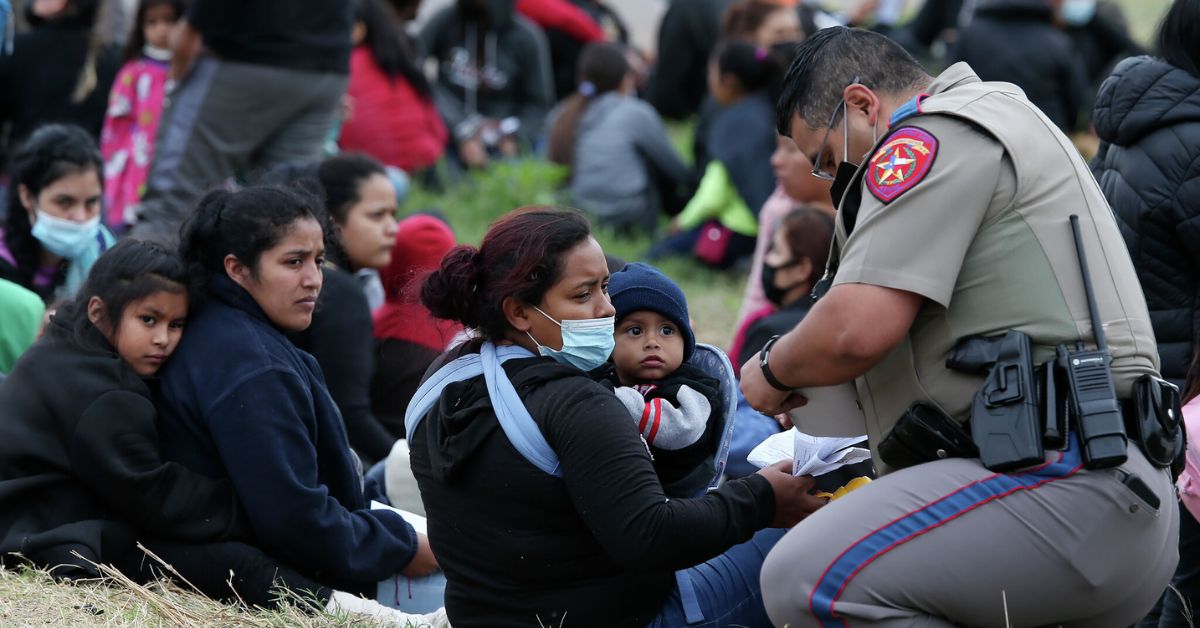This week, Republican senators in Texas moved forward with a revised plan for the state’s border crackdown that would formalize and strengthen the current, patchwork system of law enforcement, courts, and prisons along the border.
State Senator Brian Birdwell (R-Granbury) has proposed a new plan that would create a “Texas Border Force” under the direction of the Texas Rangers within the Texas Department of Public Safety.
To date, Governor Greg Abbott’s Operation Lone Star has relied on National Guard personnel, many of whom were involuntarily forced on active service for months at a time, and transferred DPS officers from other regions of the state.
Officials in Birdwell’s state have “asked an immense amount of our National Guard forces” by taking them away from their homes and regular occupations, something which he admitted. He explained that the Border Force would be a more long-term solution to the state’s substantial law enforcement presence at the border.

Birdwell has stated that the Border Force is likely to remain in place indefinitely. The government’s consistency in upholding federal law is an important variable.
House Bill 7 was amended to include the Border Force after its original aim was on establishing a grant program to strengthen the disparate court system that has failed to handle the influx of criminal charges against those who cross the border illegally.
However, since House Democrats blocked a plan last week that included an earlier version of the Border Force, the scope has been greatly extended. The amendment was saved when Republicans tacked it onto HB 7.
A proposal to let deputized civilians to serve on the border unit was among the most contentious components of the bill, but the House ultimately passed it without it.
If you want to stay abreast on current events, check out the following links:
- Texas House Has Approved a Budget That Will Give State Parks Across the State $1 Billion
- A Massive Texas Dairy Farm Fire Was Started By An Engine Fire In A Manure Hauler
To punish anyone who “enters” or “attempts to enter” Texas “from a foreign nation” without lawful immigration status, Birdwell’s current draft brings back a felony charge for “improper entry” at the border, taken from one of his own laws.
Repeat offenders or those with a prior felony conviction receive greater penalties, up to a first-degree felony, while first-time offenders face up to a year in jail.
Moreover, conservative concerns that Democratic county officials could sabotage state operations by limiting the Border Force’s jurisdiction have been addressed in the current draft by making it explicit that counties and other local governments may not do so.
Birdwell’s most recent draft omits crucial information, such as eligibility requirements, about the proposed new Border Force. It also doesn’t say how many officers would be part of the Border Force. According to Birdwell, the law was amended to remove the requirement for officers to obtain a peace officer license in order to facilitate the recruitment of National Guard soldiers.
Incentives are offered to encourage the hiring of retired Border Patrol agents and active-duty military personnel who hold valid police licenses. There is also a clause permitting DPS and the Texas Military Department (which includes the National Guard) to establish a “written agreement” to send National Guard personnel to the border force.
Texas Civil Rights Project community organizer Roberto Lopez voiced concern that the most recent draft did not make it clear whether or not deputized citizens (whom Lopez characterized as “vigilantes”) would be allowed to serve in the Border Force.
“I can tell you that, as someone who was born and raised in the Rio Grande Valley, that terrifies me,” Lopez testified before the Senate Border Security Committee. I beg you, “Please put an end to this.” With a vote of 3-2, the committee recommended passing the bill on to the full Senate.
Birdwell predicted that a conference committee made up of legislators from both houses would work out the kinks in the final version. They argued that the grant scheme would “further militarize and over-police” the border by subsidizing the development of court and jail facilities, and so they opposed the original version of HB 7.
However, Birdwell’s version does away with the court grant program, leaving only language requiring the governor’s office to allocate an undetermined amount of border security cash to court, processing, and detention facilities.
To stay in the know at all times, click the “Like” button on our Facebook page and show your support.




